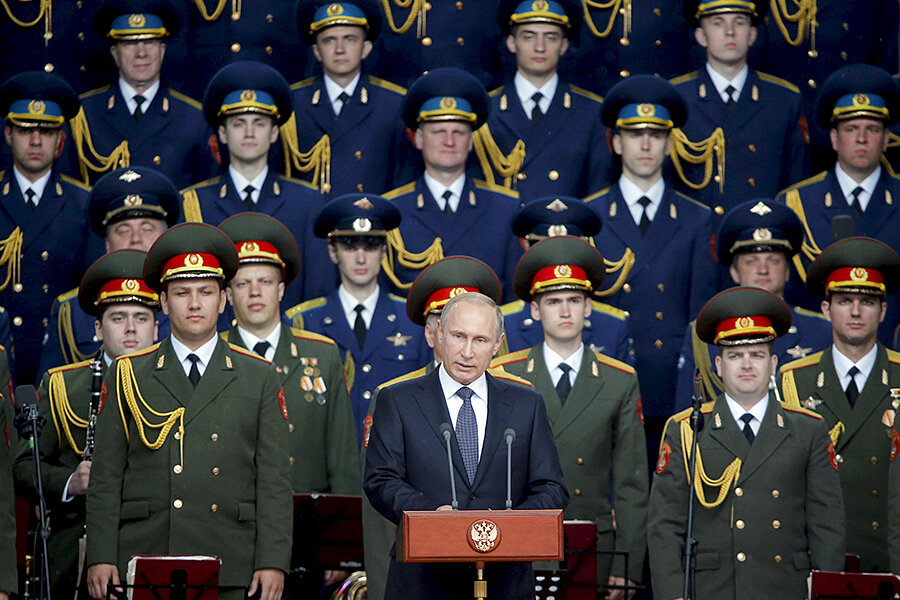Putin: Russia will add more than 40 ballistic missiles to nuclear arsenal
Loading...
| Kubinka, Russia
President Vladimir Putin said on Tuesday Russia would add more than 40 new intercontinental ballistic missiles to its nuclear arsenal this year, a remark that is likely to increase alarm in the West.
Putin made his announcement a day after Russian officials denounced a U.S. plan to station tanks and heavy weapons in NATO states on Russia's border as the most aggressive act by Washington since the Cold War.
Tension has resurged between Russia and Western powers over Moscow's role in the Ukraine crisis, in which pro-Russian separatist forces have seized a large part of the country's east after Russia annexed Crimea from Ukraine in early 2014.
The West, led by the European Union and United States, have imposed punitive economic sanctions on Russia.
"More than 40 new intercontinental ballistic missiles able to overcome even the most technically advanced anti-missile defense systems will be added to the make-up of the nuclear arsenal this year," Putin, flanked by army officers, said in a speech at an arms fair west of Moscow.
Intercontinental ballistic missiles have a minimum range of more than 5,500 km (3,400 miles). Putin gave no more details of which missiles were being added to the nuclear arsenal.
He has said several times that Russia must maintain its nuclear deterrence to counter what he sees as growing security threats, and Moscow reserves the right to deploy nuclear weapons in Crimea.
Such comments have helped whip up anti-Western sentiment and rally support behind Putin but have caused concern in the West, particularly countries on or near Russia's borders.
Fears of a new arms race
Russian officials warned on Monday that Moscow would retaliate if the United States carried out its plan to store heavy military equipment in eastern Europe, including in the Baltic states that were once in the Soviet Union.
"The feeling is that our colleagues from NATO countries are pushing us into an arms race," RIA news agency quoted Deputy Defense Minister Anatoly Antonov as saying during "Army 2015," a fair at which arms and other military equipment are on show.
Putin has said Moscow will not be drawn into a new arms race although Russia is modernizing its armed forces. Putin said in his speech that 70 percent of the military equipment in use would by 2020 be the most up-to-date and top-quality.
But lavish military spending is weighing heavily on Russia's national budget at a time when the economy is sliding towards recession, hit by low oil prices and Western sanctions.
The Kremlin portrays spending on the Russian arms sector as a driver of economic growth, but Putin's critics say it is excessive and comes at the expense of social needs.
(Additional reporting and writing by Gabriela Baczynska, Editing by Timothy Heritage and Mark Heinrich)





